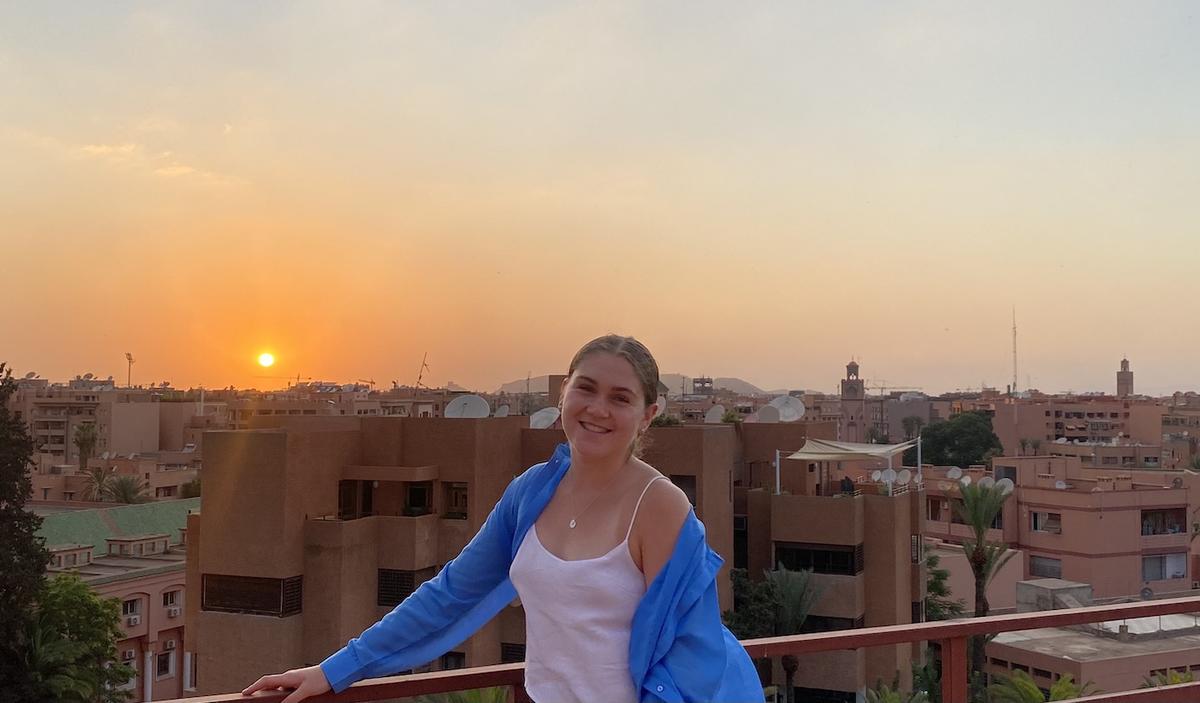How does your diet affect your health?
People often overlook the link between diet and disease, according to research done by public health student Brianna Raddatz.
Raddatz, a public health major and biology minor, had the opportunity to develop a research project through one of her classes. “We were assigned an in-class project centered around health interventions … I decided to go big and explore preventative measures for chronic disease,” she says.
Specifically, Raddatz looked at students’ perceptions of what they eat and how it impacts their health. “I wanted to discover students’ thoughts about plant-based diets,” she explains. “They’re shown to prevent different diseases and have implications for environmental sustainability, but not many people are aware of these benefits.”
She points out that plant-based eating can be a challenge, depending on a person’s location, socioeconomic status, and lifestyle. “There’s a lot of questions around that as well. Are you in a location that gets fresh produce? Is it in your price range? Do you have time to prepare your own meals?”
Raddatz had a plan to survey students in the U.S. She also had a chance to learn from students in Morocco, thanks to a study abroad program centered around research.
Research Abroad
As part of the 2022 summer Undergraduate Research Study Abroad (URSA) trip to Morocco, Raddatz visited three different Moroccan universities.
“Taking my research to Morocco was invaluable for me. I had the opportunity to compare Moroccan student perspectives to American student perspectives, which helped me understand how different countries approach health interventions,” Raddatz says. “I ended up finding that students in Morocco and the U.S. have similar perspectives about plant-based diets and that the interventions were similar as well.”
She and other URSA students participated in round-table conversations with Moroccan students, lasting up to three hours. The experience was built on collaboration, with American and Moroccan students assisting each other with their respective research projects.
Raddatz’s research focused on behaviors and beliefs surrounding food, ultimately leading to a comparative study model that can be further expanded. The subject first identifies where their current beliefs fall, then determines how their beliefs have changed after receiving health interventions.
Interventions were dependent on awareness. For someone with no knowledge of plant-based diets, their intervention would be education. People actively engaging in plant-based diets would receive interventions surrounding maintenance of the diet, while people with no knowledge would receive information about starting an easy plant-based diet.
“My goal was to see what is the most effective way to introduce interventions depending on what stage of mindset they’re in,” she says. “If someone is not that open to learning about a plant-based diet, the information shared with them should be different from someone who is strongly considering a plant-based diet.”
This information will take Raddatz to new places in research, something she is eagerly anticipating. As part of a different project, she recently co-authored a publication emphasizing food accessibility and the importance of marginalized voices in food systems.
“I never expected to do this level of research in undergrad … it feels incredible,” she says.
About the UMD Public Health program
This story was written by UMD student Erika Doetkott, who is majoring in Communication Sciences and Disorders. Erika assists Lissa Maki with communications for the College of Education and Human Service Professions.
